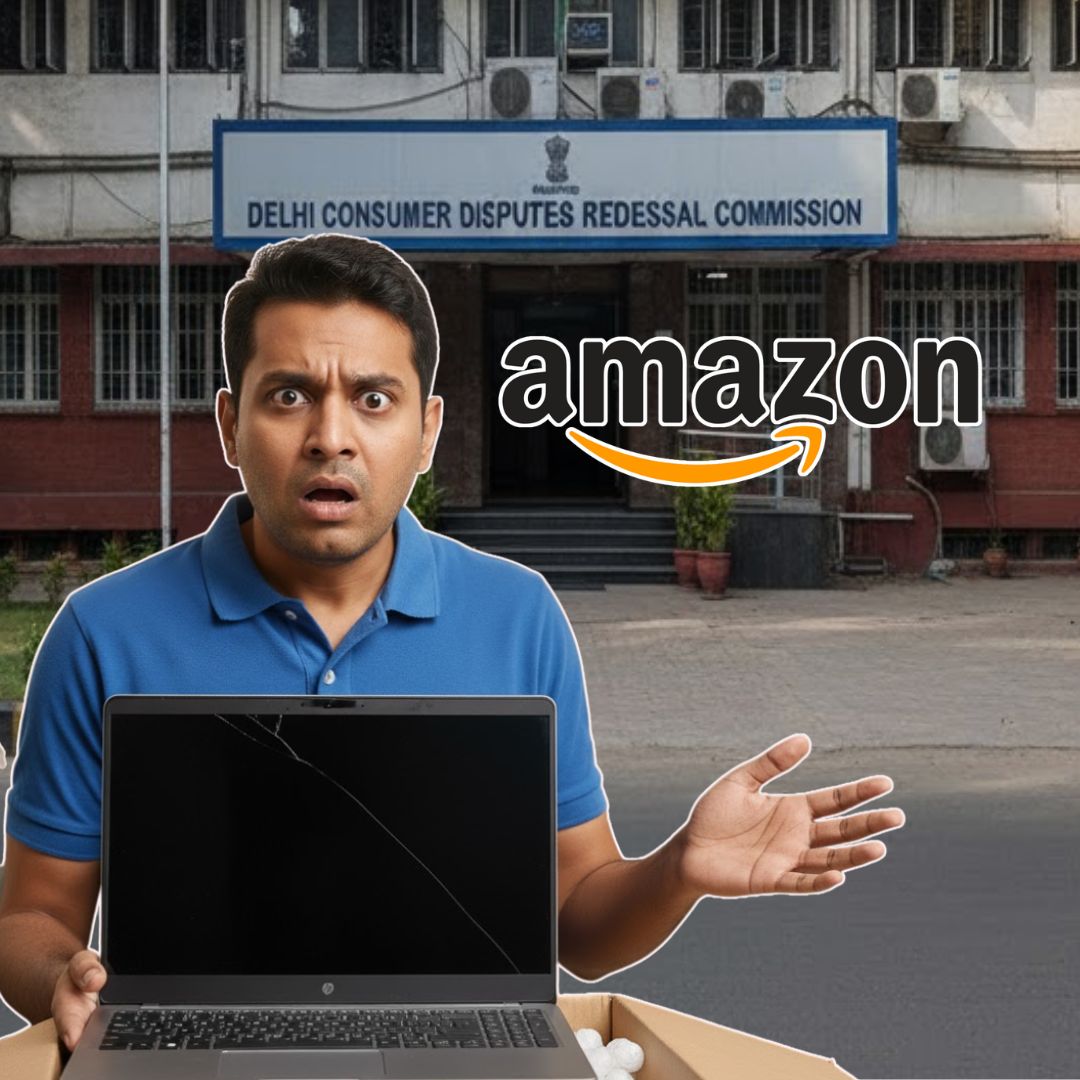In a case highlighting India’s urgent consumer safety concerns within the booming e-commerce sector, East Delhi’s District Consumer Disputes Redressal Commission recently delivered a verdict against two major retail players: Amazon Retail India Pvt. Ltd. and Appario Retail Pvt. Ltd.
The dispute arose when Harjas Singh Sondhi ordered an HP Pavilion laptop online, but was shocked to receive an obsolete IBM ThinkPad instead. The customer promptly contacted Amazon support, returning the incorrect product and sending photographic evidence to substantiate his claim.
Despite complying with all procedures, Mr. Sondhi’s refund request was denied, with Amazon citing a vague “Use Policy” and alleging inconsistencies in the product returned.
Commission Defends Consumer Rights
Faced with the refusal, Mr. Sondhi approached the East Delhi Consumer Commission. Presided by S.S. Malhotra with Member Ravi Kumar, the Commission found the defences of both Amazon and Appario evasive. “Amazon has not provided any details as to how many refunds were made, what expectations were exceeded, and what the ‘Use Policy’ actually entails,” the Commission observed, clarifying that the alleged grounds for denying the refund were afterthoughts to escape liability.
In response, the panel ruled both companies jointly liable for deficiency in service, ordering them to refund the full purchase price of ₹61,990 with 9% annual interest from the date of the transaction. Moreover, Sondhi was awarded ₹10,000 in compensation for mental agony and ₹7,500 towards litigation costs. The order mandated payment within 30 days, failing which the interest rate would climb to 11%.
Rising E-Commerce Disputes: The Bigger Picture
Consumer complaints about improper deliveries and unclear refund policies have increased as online retail expands in India. The Commission’s ruling not only provided closure for the complainant, but also spotlighted systemic weaknesses in how giant platforms handle returns and grievances.
The order notably recommended that e-commerce companies begin photographing or filming deliveries as they hand parcels to customers. This pragmatic suggestion aims to protect both consumers and sellers; it facilitates dispute resolution by creating indisputable proof of the delivered product.
Emerging e-commerce laws in India prioritise consumer data privacy, fair practices, transparent refund policies, stronger grievance redressal, and ethical business conduct.
Expert Advice: Don’t Shop Blind
Consumer law experts applaud the Commission’s insistence on thorough documentation and transparency. Buyers, they counsel, should always:
- Capture photos of the parcel and the product as soon as it arrives.
- Preserve all order-related communications, chat logs, and invoices.
- Alert the platform immediately upon noticing any discrepancy or damage.
- Request all policy documents in writing if a claim is denied and refer to Section 2(11) of the Consumer Protection Act, which outlines deficiency of service.
Such measures, legal advisors emphasise, make it significantly easier to prove one’s case in disputes with large online retailers.
The Logical Indian’s Perspective
This watershed case reminds digital retailers and platforms of their duty to put consumer safety, clarity, and transparency first. By supporting innovations such as delivery-time photo records, and demanding strict, honest refund processes, India’s e-commerce sector can foster greater trust and security.
The Logical Indian commends the Commission’s precedent and urges buyers to remain vigilant.











